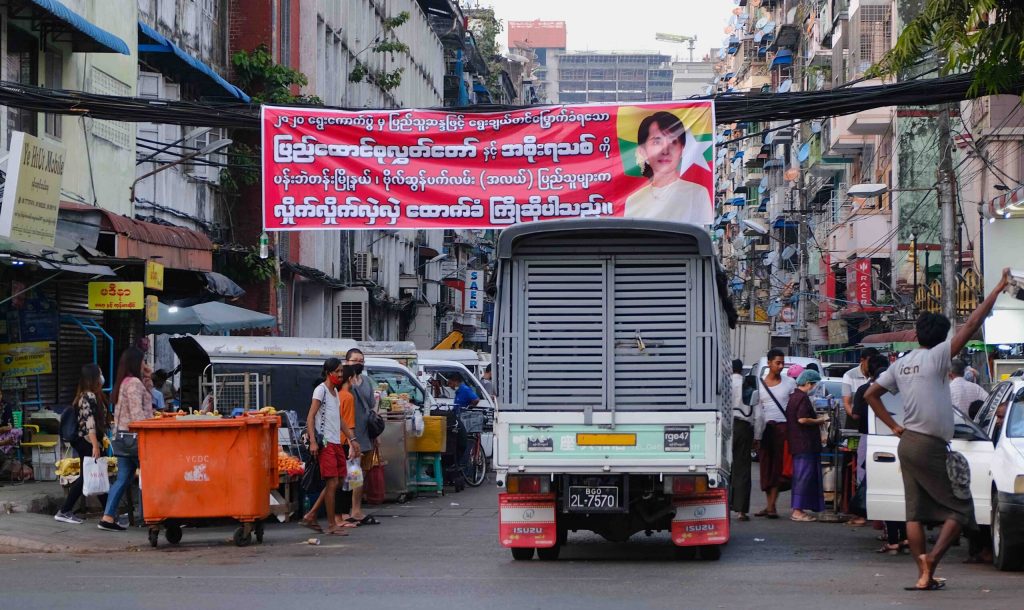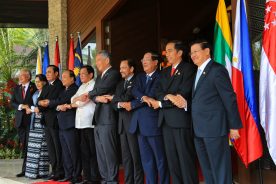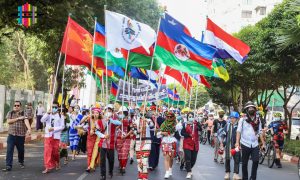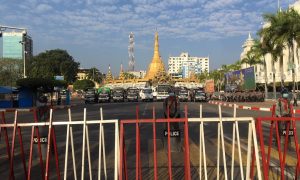One of the follow-up questions in light of the current situation in Myanmar is how the Association of Southeast Asian Nations (ASEAN) will react to the military coup carried out by the Myanmar Armed Forces ‘Tatmadaw’ on 1 February 2021. There is an expectation of a bold reaction, given ASEAN and its Member States underlying commitment to establishing democratic consolidation, or democratic-institution building, throughout the region.
The latest Myanmar coup has occurred in a period in which ASEAN nations have formally bound themselves to collective duties to strengthen democracy, good governance and fundamental freedoms. These duties are explicitly prescribed under Article 1(7), 2(h), and 2(i) of the 2008 ASEAN Charter. The Charter is a significant tool with which to demonstrate that ASEAN is a regional organization with legal authority, and to emphasise its Member States’ interest in moving to a rules-based regime. In essence, with the support of its Charter, ASEAN possesses the competence to promote democracy and demand its Member States refrain from any activity that could cause a democratic backslide in the region.
However, it is one thing to understand the ASEAN’s competence to ‘legalise democracy’, and it is another thing to believe in its capacity to enforce democratic consolidation. In 2014, the organisation was confronted with a coup within its region when General Prayut Chan-o-cha (now the Prime Minister of Thailand) commanded Royal Thai Armed Forces to overthrow Yingluck Shinawatra’s government. At that time, ASEAN failed to generate a collective position to oppose the coup, with its Member States divided on how to respond. Member States like Indonesia and the Philippines frowned upon the coup and urged Thailand to remain committed to the principles of democracy. Meanwhile, Vietnam and Myanmar openly welcomed the regime change. One would argue that the organization’s inability to generate pro-democracy positions back then resulted from a combination of not having consensus among its Member States while also being limited by the principle of non-interference from further meddling through its Member States ‘internal affairs’.
ASEAN’s tools to enforce democratic consolidation are also somewhat limited, if not non-existent. To achieve its common objective of regional democracy, the ASEAN Charter has neither incorporated democratic institutional building as an external condition for membership nor permitted the suspension of membership whenever any Member States seriously violates the Charter’s democratic clauses. The Charter, therefore, pales in comparison to the Treaties of the European Union (Article 7), the 2001 Inter-American Democratic Charter of the Organization of American States (Article 21), and the Lomé Declaration of the African Union (Part C) in terms of imposing a sanction against their respective undemocratic Member States.
Despite the relatively low odds that ASEAN will be able to act as a democratic enforcer to the region, the possibility that the organisation and its Member States could reverse an undemocratic outcome in Myanmar is still there. The latest Informal ASEAN Ministerial Meeting (IAMM), which was held virtually on 2 March 2021, reveals two important developments in ASEAN’s democratic consolidation. First, rather than emphasising the need to maintain principles of non-interference, ASEAN instead, through its IAMM Chairman’s Statement, emphasised the importance of adherence to the rule of law, good governance, democracy, and respect for fundamental freedoms. These are among the principles that the IAMM considers reflective to the organisation’s effort for regional solidarity.
Another thing worth considering is that even though the Chairman’s Statement took a predictably weak position against the situation in Myanmar, some Member States have elevated pressure on Myanmar by taking more proactive stance. For instance, Indonesia, Singapore, the Philippines, and Malaysia have urged the prompt and unconditional release of detained leaders U Win Myint, Daw Aung San Suu Kyi, and their colleagues. The Philippines Foreign Minister, Teodoro Locsin, in particular provides an interesting take on the principle of non-interference, indicating that it is not a “blanket approval or tacit consent for wrong to be done there”. Singapore also expressed its position with regard to the legitimacy of the government by not recognising the current reigning military government in Myanmar.
ASEAN’s myths: creating continuity, rather than change
ASEAN's human rights mechanisms reflect the body's prioritising the interests of national elites. Don't expect it to be of use in resolving the Rohingya crisis.
The important take-away from these positions is the fact that even though they still operate within the ambit of non-intervention, these Member States have been more inclined to voice their individual opinions, especially in a manner that could push the Myanmar to accept ASEAN’s role as conflict negotiator. This can be seen from their intention to create an ‘equal footing’ for dialogue between all contesting stakeholders, which can only be achieved by releasing all of the arrested senior civilian leaders. The Philippines liberal take on the principle of non-interference also demonstrates a willingness to show-case their moral position amid the common “save face” approach of not expressing disagreement with other member states, especially in ASEAN-related forums.
The soft diplomatic approaches described above perhaps pave the way for ASEAN and its Member States find a unique approach to respecting the Charter’s democratic clauses, not as democratic enforcers but as democratic promoters. It is yet to be seen whether these measures will directly or indirectly restore Myanmar to its former democratic state. This is taking into account ASEAN’s past normalisation of the 2014 coup in Thailand, or the fact that Tatmadaw has no records of directly submitting to either internal civil resistance movements or external pressure given by the international community. The people of Myanmar hold great hopes that ASEAN will act differently to this coup. However, for long-time observers of ASEAN, hesitation lingers. In a crisis where more and more civilians are vulnerable to human rights atrocities, just how fast can ASEAN build up its regional momentum, while there is anything left to restore?
 Facebook
Facebook  Twitter
Twitter  Soundcloud
Soundcloud  Youtube
Youtube  Rss
Rss 



